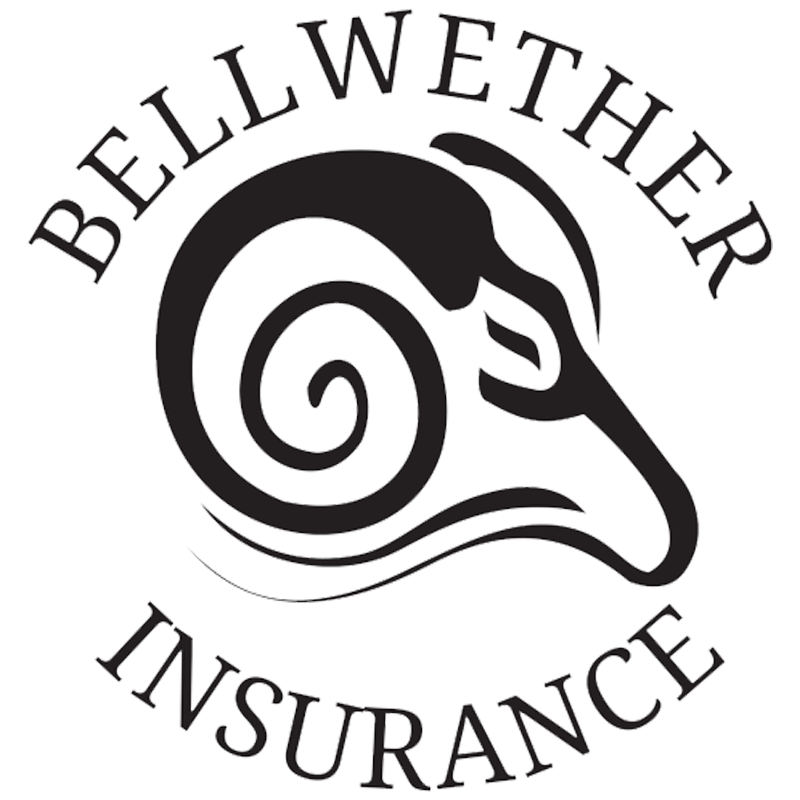Ohio E-Commerce Business Insurance

Index
Understanding the Importance of Insurance for Ohio E-Commerce Businesses
Key Types of Insurance for Ohio E-Commerce Businesses
Ohio-Specific Insurance Requirements and Regulations
How to Choose the Right Insurance Provider in Ohio
Tips for Managing and Reducing Insurance Costs
Common Challenges Ohio E-Commerce Businesses Face with Insurance
Case Studies: Ohio E-Commerce Businesses and Insurance in Action
Conclusion: Protecting Your Ohio E-Commerce Business with the Right Insurance
Contact Us
Phone
216-600-2828
Location
100 N. Center Street PO Box 627 LaGrange, OH 44050
In today’s digital age, e-commerce businesses have become a cornerstone of Ohio’s economy. From small startups selling handmade crafts to large online retailers shipping nationwide, the opportunities are vast and growing. However, with growth comes risk, and protecting your e-commerce venture with the right insurance coverage is crucial. This comprehensive guide explores everything Ohio e-commerce entrepreneurs need to know about business insurance—from understanding the types of coverage available to navigating state-specific requirements and best practices for safeguarding your online business.
Understanding the Importance of Insurance for Ohio E-Commerce Businesses
Operating an e-commerce business in Ohio involves a unique set of risks that traditional brick-and-mortar stores might not face. Cybersecurity threats, shipping liabilities, intellectual property disputes, and data breaches are just a few examples. Without adequate insurance, these risks can translate into significant financial losses or even threaten the survival of your business.
According to the U.S. Small Business Administration, nearly 20% of small businesses fail within the first year, often due to unforeseen liabilities. Insurance acts as a safety net, helping to mitigate these risks and provide peace of mind. For Ohio-based e-commerce companies, understanding the nuances of business insurance tailored to their specific operations is essential for long-term success.
Why E-Commerce Businesses Face Unique Risks
E-commerce businesses operate primarily online, which exposes them to risks such as cyberattacks and data breaches. According to the 2023 Verizon Data Breach Investigations Report, 43% of cyberattacks target small businesses, many of which are e-commerce sites. Additionally, online retailers must manage risks related to shipping products, handling customer data, and maintaining an online storefront.
Unlike physical stores, where liabilities might be limited to on-site incidents, e-commerce businesses must consider third-party risks such as delivery mishaps or software failures. Understanding these unique challenges is the first step toward selecting the right insurance coverage. Furthermore, e-commerce businesses often rely on various third-party platforms for payment processing and inventory management. Any disruption or failure in these systems can lead to significant operational downtime, impacting customer trust and sales. This reliance underscores the importance of not only having comprehensive insurance but also ensuring that your policies cover potential losses stemming from these external dependencies.
Moreover, the landscape of e-commerce is constantly evolving, with trends such as dropshipping and subscription services introducing additional layers of complexity. For instance, dropshipping businesses may face challenges related to product quality and fulfillment, which can lead to customer dissatisfaction and potential legal claims. Subscription models, while lucrative, can also bring about unique liabilities, such as the need to manage recurring billing issues and customer data privacy. Therefore, it is crucial for Ohio e-commerce entrepreneurs to stay informed about the latest industry trends and adjust their insurance coverage accordingly to protect against emerging risks.

Key Types of Insurance for Ohio E-Commerce Businesses
Choosing the right insurance policies can be overwhelming, given the variety of options available. Below are the most relevant types of insurance coverage that Ohio e-commerce businesses should consider to protect their operations comprehensively.
General Liability Insurance
General liability insurance is fundamental for any business, including e-commerce. It protects against claims related to bodily injury, property damage, and personal injury caused by your business operations or products. For example, if a customer claims that a product they purchased from your online store caused harm, this insurance can cover legal fees and settlements.
In Ohio, general liability insurance is not mandatory for e-commerce businesses but is highly recommended. It provides a financial buffer against lawsuits that could otherwise be devastating. Additionally, many suppliers and partners may require proof of general liability coverage before entering into contracts, making it an essential component of your business operations.
Product Liability Insurance
This coverage is particularly important for e-commerce businesses that manufacture or sell physical products. Product liability insurance protects against claims arising from product defects or malfunctions that cause injury or damage. Given the rise of Ohio’s manufacturing sector and the increasing number of local artisans selling online, this insurance can be critical.
For example, if a defective electronic gadget sold through your online store causes a fire, product liability insurance would cover the associated claims and damages. Moreover, in a market where consumer trust is paramount, having this insurance can enhance your brand's reputation, reassuring customers that you stand behind your products and are prepared to take responsibility in the event of an issue.
Cyber Liability Insurance
Cyber liability insurance has become increasingly vital as cyberattacks and data breaches have surged. This insurance covers losses related to data breaches, hacking incidents, ransomware attacks, and other cyber threats. It also often includes coverage for notification costs, credit monitoring for affected customers, and legal fees.
Ohio e-commerce businesses handle sensitive customer information such as credit card details and personal addresses, making them prime targets for cybercriminals. According to a 2023 report by the Ohio Cybersecurity Center, cybercrime incidents in the state increased by 27% over the past two years, highlighting the need for robust cyber liability coverage. Furthermore, as regulations around data protection tighten, having cyber liability insurance can help ensure compliance and mitigate the financial impact of potential fines or legal repercussions.
Business Owner’s Policy (BOP)
A Business Owner’s Policy bundles several types of coverage into one package, typically including general liability, property insurance, and business interruption insurance. For many small to medium-sized Ohio e-commerce businesses, a BOP can be a cost-effective way to secure comprehensive protection.
Property insurance within a BOP protects your physical assets, such as office equipment, computers, and inventory stored in warehouses. Business interruption insurance covers lost income if your business operations are halted due to a covered event like a fire or natural disaster. Additionally, a BOP often comes with the added benefit of lower premiums compared to purchasing each policy separately, making it an attractive option for budget-conscious entrepreneurs.
Commercial Property Insurance
While many e-commerce businesses operate primarily online, they often maintain physical assets such as warehouses, office spaces, or inventory storage facilities. Commercial property insurance protects these assets against risks like fire, theft, vandalism, and natural disasters.
Ohio experiences a range of weather-related risks, including tornadoes and floods in certain areas, making property insurance a prudent choice for businesses with physical locations or inventory. Furthermore, as e-commerce continues to grow, having a solid commercial property insurance policy can also facilitate smoother operations, allowing businesses to recover quickly from unexpected events and maintain customer satisfaction.
Workers’ Compensation Insurance
If your e-commerce business employs staff in Ohio, workers’ compensation insurance is mandatory. It covers medical expenses and lost wages if an employee is injured on the job. Even if your team works remotely, if you have Ohio-based employees, you must comply with state workers’ compensation laws.
This insurance not only protects employees but also shields your business from costly lawsuits related to workplace injuries. Moreover, investing in a strong workers’ compensation policy can enhance employee morale and retention, as it demonstrates your commitment to their well-being and safety. In a competitive job market, this can be a significant advantage for attracting top talent to your e-commerce venture.
Ohio-Specific Insurance Requirements and Regulations
Understanding Ohio’s state-specific insurance regulations is vital for compliance and to avoid penalties. While e-commerce businesses have some flexibility, certain coverages are legally required depending on your business structure and operations.
Mandatory Coverage for Ohio Employers
As mentioned, workers’ compensation insurance is mandatory for businesses with employees in Ohio. The Ohio Bureau of Workers’ Compensation oversees this program and enforces compliance. Failure to carry this insurance can result in fines and legal action. Furthermore, the costs associated with workers’ compensation can vary based on the industry and the specific risk factors associated with your business operations. For instance, businesses that involve manual labor or high-risk activities may face higher premiums, making it essential to assess your risk profile accurately and choose a policy that aligns with your needs.
Additionally, if your e-commerce business owns vehicles for deliveries or other purposes, Ohio law requires commercial auto insurance to cover those vehicles. This coverage not only protects against liability in the event of an accident but also covers damages to your vehicles, ensuring that your operations can continue smoothly even after unforeseen incidents.
Sales Tax and Nexus Considerations
While not an insurance matter directly, understanding Ohio’s sales tax nexus is crucial for e-commerce businesses. Ohio requires businesses with a physical presence or economic nexus in the state to collect and remit sales tax. Insurance providers may ask about your nexus status to assess risk and coverage needs, especially regarding product liability and shipping-related claims. It’s important to note that the definition of economic nexus can evolve, particularly with changes in legislation and court rulings, so staying informed about these developments is essential for compliance and financial planning.
Consumer Protection Laws Impacting Insurance Needs
Ohio has robust consumer protection laws that can affect e-commerce businesses. For example, the Ohio Consumer Sales Practices Act prohibits deceptive or unfair business practices. Insurance can help cover legal costs if your business faces claims under these laws. Additionally, businesses must be aware of the implications of data protection regulations, especially if they handle sensitive customer information. Cyber liability insurance is increasingly becoming a necessity for e-commerce businesses, as it can protect against data breaches and the associated legal ramifications.
Understanding these regulations helps in choosing insurance policies that adequately protect your business from potential legal challenges. Moreover, being proactive in your insurance strategy can not only mitigate risks but also enhance your business's reputation, as customers are more likely to trust a company that demonstrates a commitment to compliance and responsible business practices.
How to Choose the Right Insurance Provider in Ohio
Selecting an insurance provider that understands the Ohio e-commerce landscape is critical. Here are some tips to ensure you partner with the right insurer.
Look for Experience with E-Commerce Businesses
Insurance companies with experience in e-commerce understand the unique risks and coverage needs of online businesses. They can offer tailored policies and advice that general insurers may not provide.
For instance, insurers familiar with Ohio’s market will be better equipped to advise on cyber liability coverage specific to regional cybercrime trends or local shipping risks.
Compare Coverage Options and Costs
Not all insurance policies are created equal. It’s important to compare not only premiums but also coverage limits, deductibles, exclusions, and claim handling processes. Ohio e-commerce businesses should request detailed quotes and ask about any state-specific endorsements or riders.
Many insurers offer customizable packages, allowing you to add or remove coverage based on your business’s size, product type, and risk profile.
Check Financial Strength and Reputation
Choose insurers with strong financial ratings from agencies like A.M. Best or Standard & Poor’s. This ensures they have the resources to pay claims promptly. Additionally, read customer reviews and seek recommendations from other Ohio e-commerce entrepreneurs.
Utilize Local Insurance Agents
Working with local insurance agents or brokers who understand Ohio’s business environment can provide personalized service and quicker responses. They can help you navigate complex policy language and ensure compliance with state laws.

Tips for Managing and Reducing Insurance Costs
Insurance is an investment, but managing costs without sacrificing coverage is possible. Ohio e-commerce businesses can employ several strategies to optimize their insurance spending.
Bundle Policies When Possible
Purchasing a Business Owner’s Policy or bundling multiple coverages with the same insurer often results in discounts. Bundling also simplifies management and renewals.
Implement Strong Cybersecurity Measures
Since cyber liability insurance premiums are influenced by your security posture, investing in robust cybersecurity protocols can lower costs. Ohio e-commerce businesses should regularly update software, use encryption, and train employees on data security best practices.
Maintain Accurate Records and Inventory
Keeping detailed records of your inventory, sales, and assets helps insurers assess risk accurately and can prevent overpaying for coverage. It also expedites claims processing if needed.
Review and Update Policies Annually
As your business grows or changes, so do your insurance needs. Regularly reviewing policies ensures you’re not underinsured or paying for unnecessary coverage. Ohio’s dynamic e-commerce market means staying proactive is essential.
Common Challenges Ohio E-Commerce Businesses Face with Insurance
While insurance is vital, e-commerce businesses often encounter challenges in obtaining and maintaining the right coverage.
Understanding Complex Policy Language
Insurance contracts can be dense and filled with jargon. Many business owners struggle to grasp exclusions and limitations, which can lead to unexpected gaps in coverage. Working with knowledgeable agents and asking detailed questions is crucial.
Dealing with Claims Related to Cyber Incidents
Filing claims for cyberattacks can be complicated, especially when determining the extent of coverage. Ohio businesses should ensure their policies clearly define covered incidents and understand the claims process before a breach occurs.
Balancing Cost with Adequate Coverage
Budget constraints may tempt some businesses to opt for minimal coverage. However, underinsurance can result in devastating out-of-pocket expenses. Finding the right balance requires careful risk assessment and consultation with insurance professionals.
Case Studies: Ohio E-Commerce Businesses and Insurance in Action
Real-world examples illustrate the importance of having the right insurance coverage.
Case Study 1: Handmade Jewelry Store Faces Product Liability Claim
A small Ohio-based e-commerce store specializing in handmade jewelry received a claim after a customer experienced an allergic reaction to a necklace. Thanks to their product liability insurance, the business was able to cover legal fees and a settlement without jeopardizing operations.
Case Study 2: Cyberattack on a Local Online Retailer
An Ohio online retailer suffered a ransomware attack that encrypted customer data. Their cyber liability insurance covered the costs of forensic investigation, customer notification, and credit monitoring services, minimizing reputational damage and financial loss.
Case Study 3: Warehouse Fire Disrupts Operations
A mid-sized e-commerce company in Cleveland experienced a warehouse fire that destroyed inventory. Their commercial property insurance and business interruption coverage helped cover replacement costs and lost income during the rebuilding period.
Conclusion: Protecting Your Ohio E-Commerce Business with the Right Insurance
Insurance is a critical component of a successful e-commerce business strategy in Ohio. By understanding the unique risks, state-specific requirements, and available coverage options, business owners can make informed decisions that protect their investments and support sustainable growth.
From general liability and product liability to cyber liability and workers’ compensation, the right insurance policies provide a safety net against the unpredictable challenges of the online marketplace. Partnering with experienced local insurers and regularly reviewing your coverage ensures your Ohio e-commerce business remains resilient in an ever-evolving digital economy.
Investing time and resources into securing comprehensive insurance coverage today can save your business from costly setbacks tomorrow.


